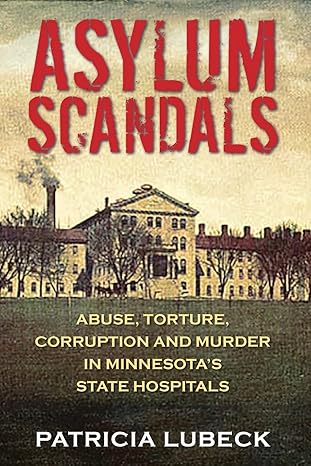You turn on a podcast during your commute. You binge-watch a documentary series at night. The topic? A real-life crime story. You’re not alone. Millions of people are fascinated by true crime. But why? Why do we spend so much time on stories about murder, mystery, and the darkest sides of human nature?
It might seem strange or even morbid. But psychologists and experts have found that this interest is usually normal and comes from a mix of curiosity, a desire for safety, and a need to understand the human mind.
This article will explore the real reasons behind our true crime obsession in a simple, clear way. We’ll look at the science, the feelings, and the surprising benefits of this popular interest.
1. Our Built-In Curiosity: The “Click” of the Lizard Brain
Deep inside all our brains is a very old part sometimes called the “lizard brain.” It’s responsible for our most basic instincts: fight, flight, or freeze. True crime stories tap directly into this part of us.
- The Thrill of Fear (From a Safe Distance): Listening to a scary story is like riding a roller coaster. Your heart might beat faster, and you feel a jolt of adrenaline. But you are safe on your couch or in your car. Your brain gets to experience danger without any real risk. It’s a thrilling, safe adventure.
- The Puzzle-Solving Instinct: Humans are natural problem-solvers. A true crime story is a giant, real-world puzzle. Who did it? How did they do it? Why did they do it? Our brains love to look for clues, follow the evidence, and try to solve the mystery before the detective does. It’s a mental workout that feels satisfying.
2. The Ultimate “What If?” Game: Preparing for the Unthinkable
For many, especially women, true crime is a kind of safety manual.
- Learning Survival Skills: By hearing detailed stories of how crimes happen, we learn what to watch for. We learn about red flags in relationships, unsafe situations, and how victims have escaped. This knowledge makes us feel more prepared and in control in an unpredictable world. It’s a way of thinking, “If I’m ever in a situation like that, I’ll know what to do.”
- A Sense of Control: The world can feel random and scary. By studying crime, we try to find patterns and reasons. Understanding why a criminal acts a certain way makes the world feel less chaotic. It’s a way of trying to bring order to chaos.
3. Understanding the Unthinkable: A Look into the Dark Side
How can someone do something so terrible? This is perhaps the biggest question driving true crime fans.
- The Fascination with “Otherness”: Most of us cannot imagine committing a violent act. The mind of a criminal feels foreign and strange. True crime stories let us “visit” this dark side of human nature from a safe distance. We try to understand their childhood, their motives, and their twisted logic. It helps us make sense of the senseless.
- The Psychology of Good vs. Evil: These stories are often the real-life version of a classic battle between good and evil. We get to root for the detectives (the good guys) and see justice served against the criminal (the bad guy). This creates a powerful and satisfying story arc.
4. The Power of Storytelling and Connection
At its heart, a true crime story is just that—a story. And humans have been telling stories around campfires for thousands of years.
- It’s a Gripping Narrative: The best true crime shows and podcasts are made like great movies. They have suspense, drama, heroes, and villains. They hook us with cliffhangers and emotional interviews. We become invested in the characters and the outcome.
- Community and “Watercooler” Talk: When a big documentary like Making a Murderer or a podcast like Serial comes out, everyone talks about it. It gives people a shared experience. You can discuss theories with friends, family, and online communities. This shared interest makes people feel connected.
5. Seeking Justice and Giving a Voice
For many, the interest goes beyond entertainment. It’s about a search for justice.
- The Need for Closure: Many true crime stories are unsolved or have controversial endings. Fans become deeply invested in seeing the case closed and justice served for the victim and their family. Online communities have even helped bring new attention to cold cases.
- Remembering the Victim: A crucial part of modern true crime is focusing on the victim’s life, not just the criminal’s actions. By learning their story, we honor their memory and ensure they are not forgotten. It’s a way of showing empathy and respect.
Is My True Crime Habit Healthy? Knowing the Limits

It’s important to check in with yourself. For most people, true crime is a harmless interest. But how can you tell if it’s becoming a problem?
Signs of a healthy interest:
- You feel more aware of your surroundings.
- It sparks interesting conversations.
- You feel satisfied when a case is solved.
- You can turn it off and enjoy other activities.
Signs you may need a break:
- You feel overly anxious, paranoid, or unable to trust people.
- You have trouble sleeping or experience nightmares.
- You feel sad or hopeless most of the time.
- You are spending so much time on it that it interferes with your work, relationships, or hobbies.
If you relate to the points in the second list, it might be time to switch to a different genre for a while. Your mental health is more important than the next episode.
Frequently Asked Questions (FAQs)
Q: Is it mostly women who are obsessed with true crime?
A: Yes, statistics show that the audience is overwhelmingly female. Some studies suggest that up to 70% of true crime podcast listeners are women. Experts believe this is because women are more often the targets of certain violent crimes, so consuming true crime is a way to learn about risk and feel more prepared.
Q: Is being interested in true crime disrespectful to the victims?
A: It can be, if it’s not done thoughtfully. The key is respect. Look for content that focuses on the victim’s life and story, not just glorifying the criminal. Responsible creators often work with victim’s families and donate to related charities. As a consumer, being mindful of the real people involved is crucial.
Q: Can watching too much true crime cause anxiety?
A: Absolutely. Just like watching too much scary news can make you anxious, binging on violent true crime can increase feelings of fear, paranoia, and a belief that the world is more dangerous than it actually is. It’s important to balance it with lighter content and take breaks.
Q: Has true crime always been popular?
A: Yes! Before podcasts and TV, people were fascinated by crime broadsides (old-timey newspapers), detective novels, and public executions. The format has changed, but the human fascination with crime and justice is centuries old.
Q: What are some positive outcomes of the true crime genre?
A: There are several! The most famous example is the podcast Serial, which led to a new trial for Adnan Syed. More broadly, true crime media has:
- Helped solve cold cases by bringing new attention to them.
- Raised awareness about flaws in the justice system.
- Educated the public about personal safety.
- Created communities that support victims’ families.
By the Numbers: True Crime in Statistics
- 73% of Americans report consuming true crime content at least once a month. (Source: YouGov)
- True Crime is a Top Podcast Genre: It consistently ranks in the top 5 most popular podcast genres. (Source: Edison Research)
- Women are the Primary Audience: As mentioned, an estimated 70% or more of the most popular true crime podcast audiences are women. (Source: Midroll Media)
- Awareness vs. Fear: A 2021 study found that while true crime fans felt more knowledgeable about crime, they were also more likely to overestimate the actual crime rate and feel increased anxiety.
Conclusion: It’s More Than Just Morbid Curiosity
So, why are people obsessed with true crime? It’s not just one reason. It’s a powerful mix of our natural curiosity, our desire to feel safe, our need to understand evil, and our love for a good story. It’s a way to explore our deepest fears from the safety of our living rooms, to cheer for justice, and to feel connected to others.
For most, it’s a normal and even helpful interest. The key is to consume it mindfully, with respect for the real people involved, and to know when to take a step back for your own peace of mind. The next time you press play on a new detective series, you’ll understand the fascinating psychological reasons pulling you in.




0 Comments